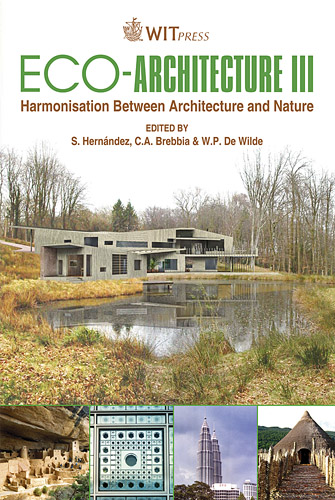The Climatic, Constructional, And Cultural Primacy Of The Envelope: UR22, A Case Study
Price
Free (open access)
Transaction
Volume
128
Pages
12
Page Range
575 - 586
Published
2010
Size
1,419 kb
Paper DOI
10.2495/ARC100491
Copyright
WIT Press
Author(s)
V. Snyder
Abstract
More than any other singular aspect, a building’s envelope has the capacity to integrate many of the primary concerns of any new building design into a unified, harmonious artifact. UR22 (a residence built in 2008 in suburban Dallas) is presented as a case study that demonstrates how direct and synthetic responses registered by a building’s envelope can successfully operate within multiple contexts – climatic, constructional, and cultural. Regionally, UR22 represents a shift from the excessive land and energy consumption and social alienation of typical contemporary American residential developments. UR22 is demonstrative of the client’s intention for a greater sense of community and respect for the environment and energy at the scale of the development, site, and the home itself. Quantitatively, UR22 has achieved LEED-H GOLD and Energy Star HERS 50 (50% energy reduction) ratings. Qualitatively, UR22 remediates and exploits a potential conflict between comfort and some very direct expressions of natural forces/energies both resisted and gathered within the harsh climate of the North Texas. This paper presents how UR22 is consistently organized and designed to produce an integrated form with respect to site orientation, protective enclosure, control of the elements and structure. Keywords: climate, construction envelope, culture, integrated form, solar orientation, enclosure, collected elements, structure. 1 Introduction All architectural projects must address multiple concerns and most often a singular factor becomes the dominant \“driver” from which other decisions must attempt to locate their relevancy. Certainly, within the context of a volatile climate such as in North Texas, the potential solar impact for any project could
Keywords
climate, construction envelope, culture, integrated form, solar orientation, enclosure, collected elements, structure





